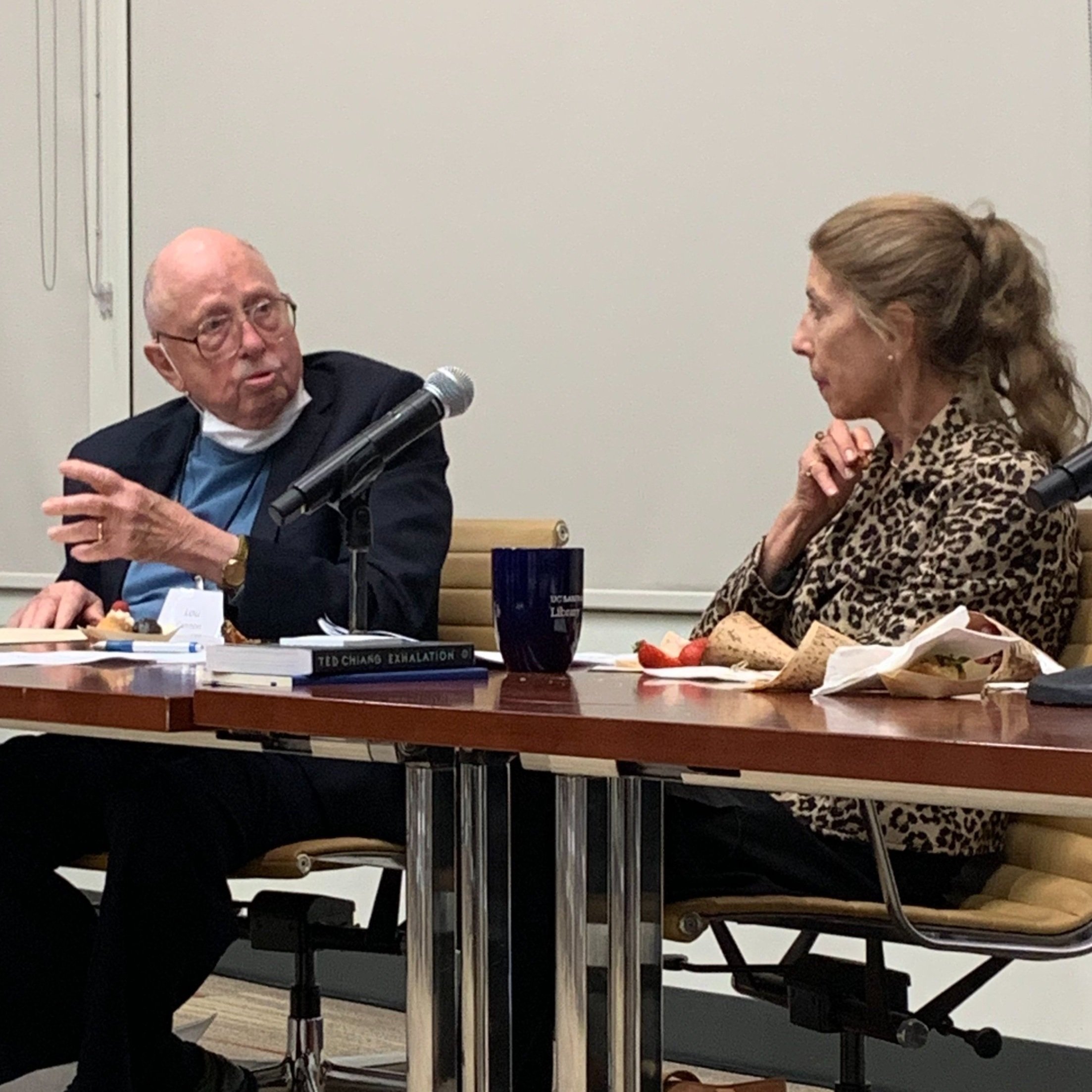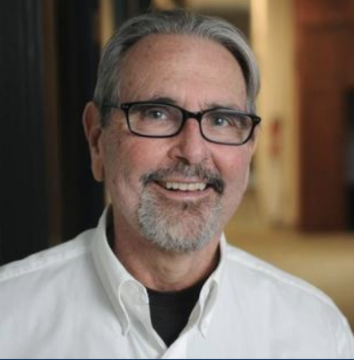By Colleen Coveney
The UC Santa Barbara library’s Special Research Collections is home to approximately 250,000 volumes, 16,000 linear feet of manuscripts, 100,000 photographs, and more than 200,000 early sound recordings.
Journalists Lou Cannon and Ann Louise Bardach spoke at a Special Research Collections event last week, celebrating the donation of their career archives to the UCSB Library.
Now, a small portion of this massive collection is devoted to the records kept by Santa Barbara writers Ann Louise Bardach and Lou Cannon during their decades-long journalism careers.
Bardach and Cannon spoke last week at a library event titled “Why Archives Matter,” during which the two recalled how archives were key to their work as journalists. They both decided to house their collections at UCSB so the materials could be easily accessible to researchers and the public.
Bardach reflected on her career writing political and cultural articles for The New York Times, The Washington Post, The Los Angeles Times, Vanity Fair and many others. She is the author of Cuba Confidential: Love and Vengeance in Miami and Havana.
Gwyn Lurie, executive editor of the Montecito Journal, co-moderated a UCSB library event about the importance of archives.
Cannon spoke on his 26 years at The Washington Post, where he was a weekly columnist and the senior White House correspondent during Ronald Reagan’s presidency, as well as his experience writing, editing, and advising for local publications like California Journal and State Net Capitol Journal. Cannon is author of President Reagan: The Role of a Lifetime.
The discussion was moderated by Gwyn Lurie, Executive Editor of the Montecito Journal, and Jerry Roberts, a former managing editor of the San Francisco Chronicle who co-founded Calbuzz and now covers Santa Barbara politics and media on his Newsmakers with JR broadcast.
Jerry Roberts, co-founder of Calbuzz and broadcaster of Newsmakers , co-moderated the “Why Archives Matter” event with Lurie.
Cannon’s journalistic reserves contain decades’ worth of material about Ronald Reagan’s political career, including interviews with the president, the first lady, and major and minor figures within the Reagan administration, while Bardach’s hold transcripts and tapes of her interviews with influential figures such as Cuba’s Fidel Castro and CIA officer E. Howard Hunt.
Yet both journalists said the most valuable components of their respective archives are the interviews with regular people, rather than those with prominent historical figures.
“Interviews with politicians are pretentious,” Cannon said. “Forget the names you already know and look at the people you’ve never heard of, and you’ll find some pretty interesting stuff.”
For example, Cannon said, his archives include many interviews with Los Angeles Police Department officers recorded during the Rodney King riots in 1992, which would provide relevant context to researchers studying the attitudes of police officers during that period of civil unrest.
Bardach agreed with Cannon. “What I loved doing the most was what we called ‘man on the street’ interviews with regular people,” she said. “That’s what I consider to be the jewel of my research archives.”
Writer Ann Louise Bardach rehashed intrepid adventures from her journalism career at a Library event last week. She recently donated her archives to UCSB.
She joked that the library is benefitting from her bad habits, as she tended to conduct far more research and interviews than she needed to reach the word count for her stories, and saved every record from the start. “I don’t know if it was a youthful delusional self-importance,” Bardach said.
Ultimately, Cannon and Bardach both found that once their journalistic careers slowed down, their archives took up more space than they needed and would be better suited in a collection accessible to students, journalists, and researchers alike.
Bardach and Cannon are still avid consumers of news. Cannon said that today’s journalism has been undermined by social media because people mostly access news that agrees with their political and social ideology, leading to less awareness of events and issues and limiting civil discourse.
He said it has also led to the collapse of the business model in which newspapers formerly thrived.
“Local coverage has just about disappeared in most places,” Cannon said. “I think that something’s been lost in that… the populace has become far less informed.”
As a result, he said, local politicians can get away with decisions that would not be permitted if they were under close public scrutiny.
Bardach is alarmed by the decline of international news coverage.
“The biggest issue for me is foreign coverage,” said Bardach. She said that foreign alliances and corruption have resulted in a global network of autocrats, of which many people are unaware.
Nevertheless, according to Cannon there is still hope for journalism. He said that each time he meets aspiring young journalists, he is struck by their idealism. “You tell them they aren’t going to make any money… they don’t care,” Cannon said.
Selfless future journalists, and anyone else intrigued by Cannon and Bardach’s work, can access their archives Monday through Friday from 9 a.m. to 12 p.m. and 1 p.m. to 4 p.m. by appointment in the Special Research Collections on the third floor of the Library. UC Santa Barbara has also recently launched a journalism track in its Professional Writing Minor.
Colleen Coveney is a fourth-year UC Santa Barbara student majoring in Psychology and Brain Sciences. She is a Web and Social Media Intern for the Division of Humanities and Fine Arts.





